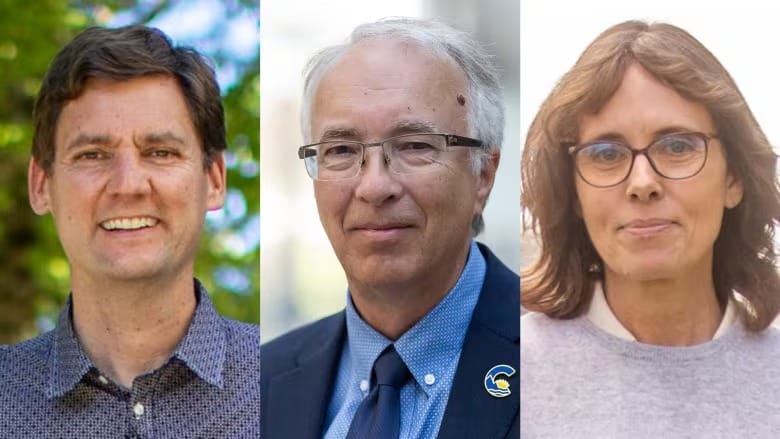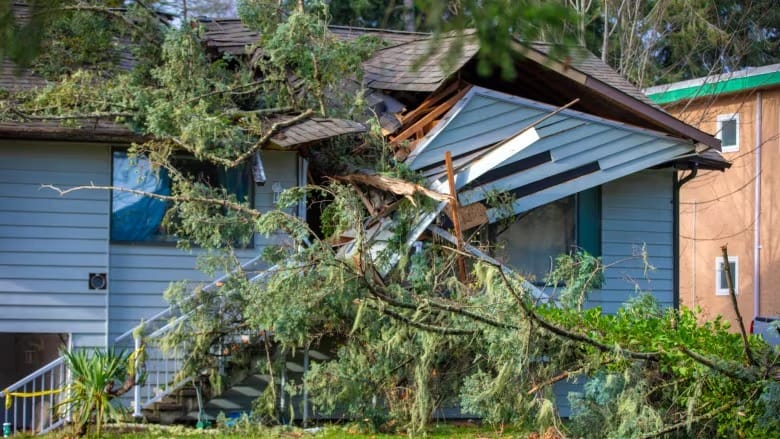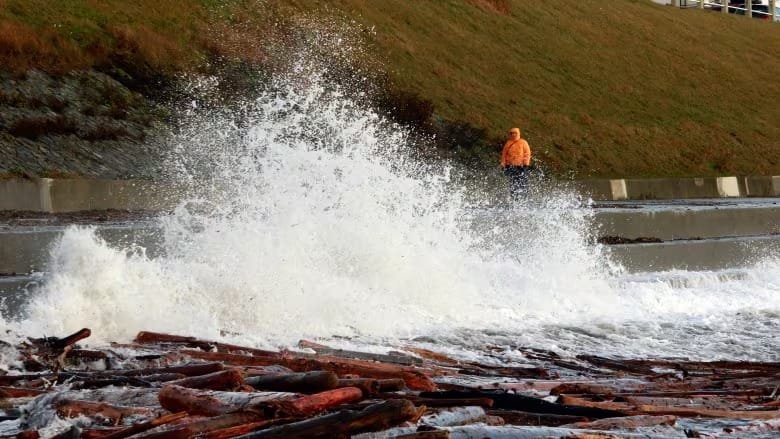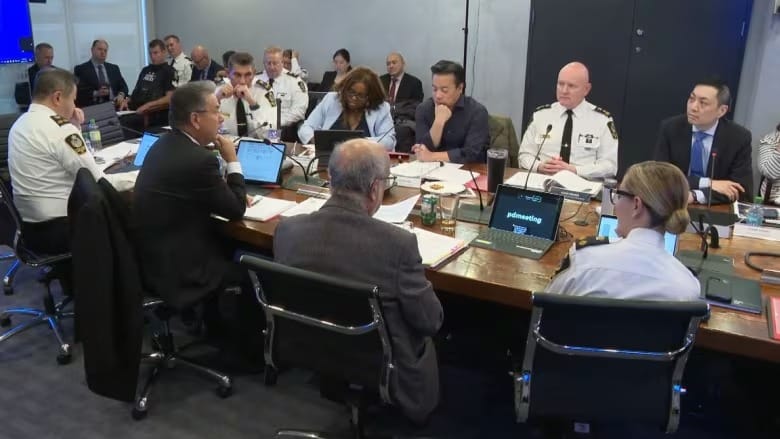Tough to identify battlegrounds in B.C. election as race heats up
Analysts say emergence of B.C. Conservatives and the reshaping of provincial ridings make forecasting hard

The complexities of predicting an election and identifying its key battlegrounds are significant in any race, but observers of the British Columbia poll this month are confronted with two unknowns that complicate the calculations even further.
These unknowns are the substantial redistribution that has added six new ridings to the electoral map, and the collapse of the Opposition B.C. United party, previously known as the B.C. Liberals, alongside the rise of the emerging B.C. Conservatives as the main challenger to the B.C. NDP.
Kennedy Stewart, the former mayor of Vancouver and an MP for the federal NDP from 2011 to 2018, noted that these factors make the Oct. 19 election difficult to predict.
"Ordinarily, in a race where it has familiar parties with familiar ridings, familiar boundaries, it's a lot easier to predict what's going to happen," Stewart said. "But those two main things — the boundary changes and the total upheaval on the centre-right — make this a very difficult election to predict."
Mike McDonald, who served as chief of staff for former B.C. Liberal premier Christy Clark, stated that there are "always a few ridings that surprise you," but this year's realignment of both ridings and parties adds even more uncertainty.
Nevertheless, both McDonald and Stewart believe some areas will be scrutinized for their potential to influence the race, particularly seats that swung to the NDP in 2020, benefiting from a 14 percent gap over the Liberals in the overall popular vote.
McDonald explained that such a wide gap created a "wave" that propelled the NDP to victory in ridings that typically do not lean left, including areas in Fraser Valley communities like Langley, Abbotsford, and Chilliwack. The NDP secured five out of seven ridings in those regions in 2020.
"In this election, the public polls are telling us it's going to be much tighter, at least so far," McDonald said regarding the popular vote. "So, if we see a single-digit margin in the popular vote provincewide — say, a difference of less than five percent — then many of those NDP seats won in 2020 could be lost."
The focus then shifts to how far a Conservative wave in the Fraser Valley might extend into Metro Vancouver, McDonald noted. He highlighted the importance of Langley-Willowbrook, which includes the City of Langley and has seen a trend of younger families moving in from larger communities in the Lower Mainland.
"That riding is in question," he remarked. "It's gone federal Liberal in some recent elections and, of course, it went NDP last time. So, a riding like Langley-Willowbrook could be where the NDP starts to push back and counter the Conservative momentum."
Stewart emphasized that deep urban ridings, historically strongholds for the NDP against centre-right parties, should also be closely monitored. He pointed out that this trend may not hold due to what he perceives as the NDP's shift toward the center on issues like the carbon tax and involuntary care for drug users and individuals with mental illnesses.
Such policies might be aimed at fending off the right but could diminish enthusiasm among the NDP's base, he explained.
"I think that all adds up to say that even in traditional areas that would be safe for the NDP like Vancouver, you're going to see some ridings that may be in play for the Conservatives that wouldn't have been before," Stewart noted.
"For instance, areas like Vancouver-Little Mountain, which has undergone a significant boundary change, could be a closer race than usual. You might also see Langara and even [NDP Leader David Eby’s] own riding of Point Grey, which has alternated between the centre-right and the NDP, likely in play as well."
Stewart is also monitoring ridings where the B.C. Green Party has historically performed well, particularly regarding how the NDP's centrist shift on issues like the carbon tax may influence voter sentiment.
He pointed out that the Greens are facing challenges as leader Sonia Furstenau switches ridings to contest NDP cabinet member Grace Lore in Victoria-Beacon Hill. Furstenau’s deputy, Adam Olsen, has opted not to run in Saanich North and the Islands, leaving no incumbent Greens defending their seats.
"I thought this wasn't going to be great for the Greens," Stewart said. "However, with the NDP kind of shifting to the right … I think it really does open an opportunity for the Greens to pick up disaffected NDP voters."
McDonald mentioned that the Greens' best chance of retaining a seat in the legislature may be in West Vancouver-Sea to Sky, where their candidate Jeremy Valeriote narrowly lost to B.C. Liberals' Jordan Sturdy by 60 votes in 2020. Valeriote is returning to contest the riding, but Sturdy will not be running again. Instead, Valeriote will face two prominent candidates — Order of B.C. recipient Yuri Fulmer for the Conservatives and former Union of B.C. Municipalities president Jen Ford for the NDP.
"That region has changed a lot," McDonald said. "The Sea-to-Sky corridor now represents a larger segment of the population than the West Vancouver part, so that race will be very unpredictable and definitely one to watch."
Regarding Independents, McDonald anticipates intense competition in traditional battlegrounds like Maple Ridge, Coquitlam-Burke Mountain, Courtenay-Comox, and Skeena, as well as in communities experiencing demographic shifts such as Surrey and Richmond.
However, he is not optimistic about the prospects for former B.C. United incumbents running as Independents in traditionally centre-right areas.
"I think the independent candidates will have the most significant impact in ridings where the NDP has a chance of winning, as a strong Independent may dilute the Conservative vote and help elect an NDP MLA," McDonald said, citing Vernon-Lumby as an example. There, Lumby mayor and former B.C. United candidate Kevin Acton is running as an Independent against incumbent NDP candidate Harwinder Sandhu and Conservative candidate Dennis Giesbrecht.
Incumbents running as Independents, such as Mike Bernier in Peace River South, Dan Davies in Peace River North, Tom Shypitka in Kootenay-Rockies, Coralee Oakes in Prince George-North Cariboo, and Karin Kirkpatrick in West Vancouver-Capilano, are likely to face challenges in seeking re-election, according to McDonald.
"In British Columbia's history, it's very hard for an Independent to win an election. It's only happened a handful of times," he stated.





